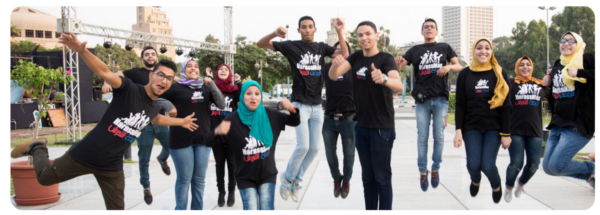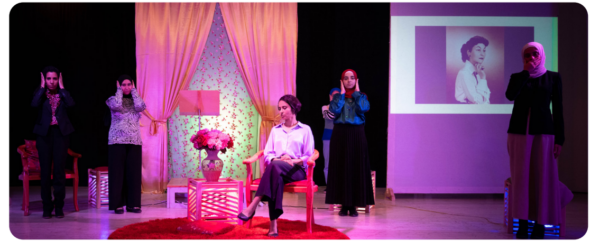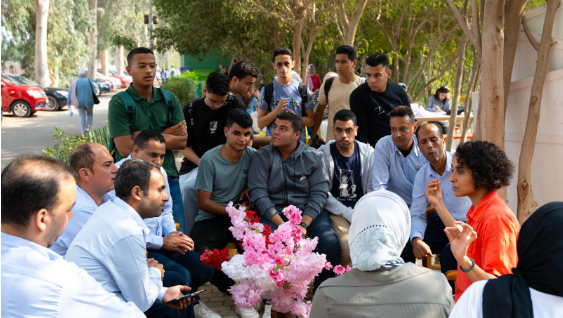Sexual harassment is a serious problem in Egypt. It is difficult to determine the current percentage of women who have experienced sexual harassment due to underreporting and cultural factors that affect how harassment is defined. However, the research “Study on Ways and Methods to Eliminate Sexual Harassment in Egypt” carried out by UN Women in 2013 revealed that over 99% of Egyptian girls and women surveyed back then, experienced some form of sexual harassment in their lifetime (UNFPA Egypt). In order to eliminate sexual harassment in Egypt, civil society organizations and advocacy groups provide support services, and push for stronger legal protections for the victims. However, implementation and enforcement of laws remain challenging due to deep-rooted social attitudes and inadequate resources. That is why raising awareness about the issue among the population is so important.
Since 2014 the Egyptian Government has encouraged all universities in Egypt to act on the issue. Currently a number of Egyptian universities (Mansoura, Cairo, Ain Shams, Assiut, Benha, and other university hospitals) are launching the first Safe Women clinics and creating harassment-free initiatives on their campuses (American University of Cairo). Heliopolis University (HU) followed this example and launched the Sexual Harassment Free Campus (SHFC) campaign in March 2022. It aims to address the issue through creating a safe space where everyone gets encouraged to speak up and to raise awareness with the help of brochures, videos, information booths and theater productions.

In November 2023 the HU Space of Culture announced the start of the third phase of the campaign with opening speeches from Prof. Dr. Gouda (President of Heliopolis University) and Dr. Heba Mohamed (Dean of Faculty of Physical Therapy). The third phase launched with two days of events on campus that included mini-workshops, casual talks, street and puppet theaters. Within the framework of the campaign Professor Dr Omar Ramzy (Dean of Faculty of Business and Economics at HU) gave a presentation entitled “What violence against women costs”, where he talked about the true cost of gender based violence for the Egyptian economy, and its negative effect on the country’s GDP, as well as productivity and labor force (The Egypt Economic Cost of Gender Based Violence Survey Egypt 2015).

It is important to continue raising awareness about this issue, as it contributes to gaining broad support and political will for implementing gender equality policies. As the next step for the SHFC campaign, HU will begin a collaboration with the National Council of Women in Egypt.
To learn more about the HU SHFC campaign check out the videos:
https://www.youtube.com/watch?v=wKogehOiodk
https://www.youtube.com/watch?v=8gdBufN_c2s
https://www.youtube.com/watch?v=taG2TvK9l6k

